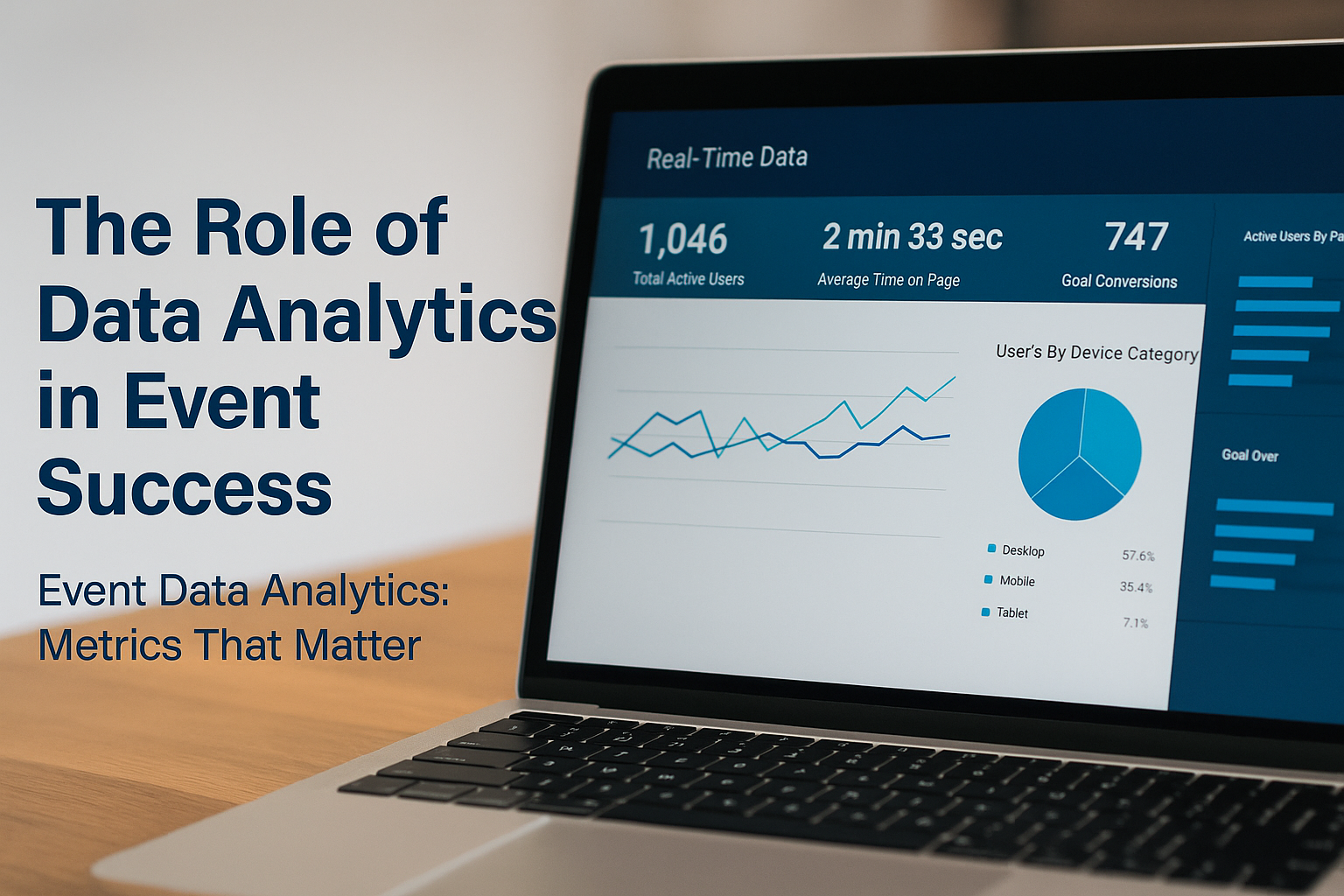
In the fast-paced world of events especially in competitive hubs like Dubai gut feelings are no longer enough. Data is now the most valuable asset when it comes to optimizing guest experiences, proving ROI, and ensuring operational excellence. Event data tracking in Dubai is redefining how planners and brands approach event success.
From pre-event engagement metrics to on-site heat mapping and post-event sentiment analysis, every click, step, and interaction can now be measured. But what truly matters and how can you use it strategically?
Why Data Matters in Modern Event Planning
Event organizers are under pressure to demonstrate clear value. Whether it’s an international conference, brand activation, or luxury gala, stakeholders want answers to questions like:
- How many people attended?
- What did they engage with?
- Was the investment worth it?
Data answers those questions. With the right systems in place, event professionals can track attendance, dwell time, engagement, lead generation, satisfaction, and spending patterns all in real time.
What Event Data Can Be Tracked
Here’s a breakdown of key event data points:
| Data Type | Examples |
|---|---|
| Pre-Event | RSVP rates, email open/click rates, social impressions |
| On-Site | Check-in times, session attendance, badge scans, traffic flow |
| Engagement | App usage, live polls, Q&A submissions, gamification |
| Post-Event | Feedback scores, survey completion, NPS, follow-up clicks |
How Dubai Events Are Leveraging Data Analytics
Dubai’s event scene is known for its innovation and scale. Leading planners are already incorporating:
- RFID wristbands & smart badges for session tracking
- Mobile apps with integrated analytics dashboards
- Heat mapping tech to analyze crowd behavior at expos
- AI-driven feedback tools for sentiment analysis
- Facial recognition (in compliance with privacy laws) for security and engagement
Real-world application: An international tech expo in Dubai used live session attendance data to switch breakout room allocations on the fly minimizing bottlenecks and improving guest satisfaction.
Turning Insights into Action
Collecting data is just the start. The real value lies in how you use it:
- Optimize layouts and logistics based on flow and dwell time
- Identify content gaps from low-engagement sessions
- Refine marketing by tracking top sources of attendee conversions
- Measure ROI for sponsors based on lead scans or exposure
Tools for Effective Event Data Tracking
Some of the top tools that support event data tracking in Dubai include:
- Cvent / Eventbrite (registration & analytics)
- Hubilo / Swapcard (virtual + hybrid analytics)
- Glisser / Slido (interactive audience engagement)
- Zkipster / Brella (guest data and tracking)
When selecting a tool, ensure it integrates with your CRM, is GDPR-compliant, and offers real-time dashboards.
Common Pitfalls in Event Analytics
- Tracking everything without a goal
➤ Always define KPIs first - Ignoring privacy laws
➤ Be transparent with attendees about what’s collected and why - Not acting on data
➤ Use insights to iterate and improve
FAQs: Event Data Analytics in Dubai
1. What are the most important KPIs for tracking event success?
It depends on the event, but common KPIs include: attendance rate, engagement levels (polls, Q&A, app use), session popularity, dwell time, and ROI per attendee.
2. How can I use data analytics for sponsor reporting?
Show sponsor-specific metrics such as booth visits, badge scans, lead capture, and on-site dwell time. Data makes your sponsorship packages more valuable.
3. Is live data tracking expensive to implement?
There are scalable solutions for different budgets. Even small events can use apps or RFID tags to collect valuable insights affordably.
4. How do I ensure privacy while tracking attendee data?
Be transparent. Inform attendees during registration what data will be tracked and offer opt-outs where appropriate. Follow local and international privacy standards.
5. Can analytics improve future event planning?
Yes analytics reveal which formats, timings, and channels work best, so each future event can be better informed and more strategic.
In Dubai’s thriving events industry, data analytics has become a strategic advantage. From planning to execution and post-event reporting, the power to track, analyze, and optimize events is now in your hands.
Event data tracking in Dubai is no longer a trend it’s a necessity. Embrace it, and your events will not only run smoother but also drive measurable, meaningful success.